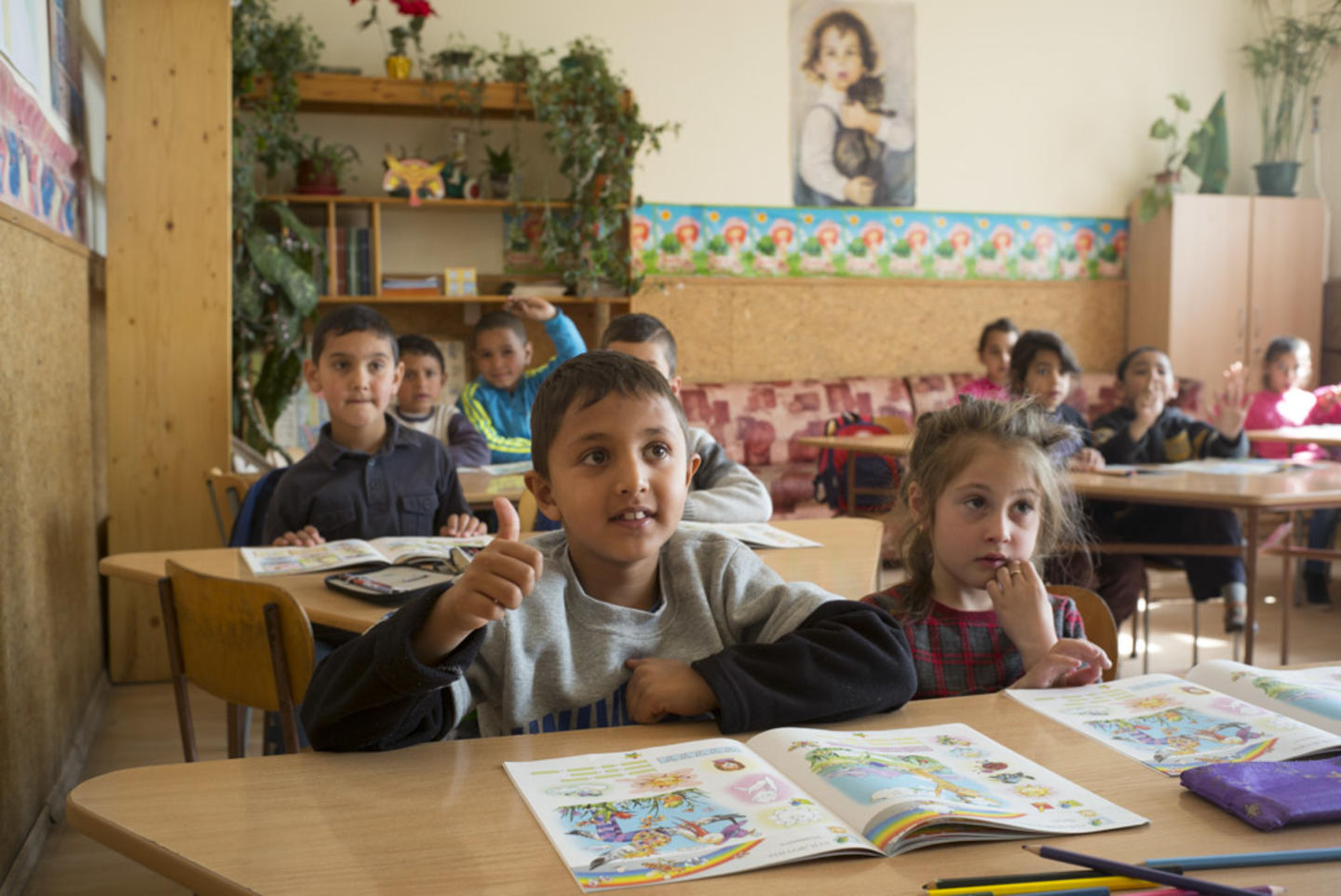“For the Roma as a group, education is of crucial importance in order to become integrated into society and escape poverty”, explains Boika Shopova from the district administration of Krasna Polyana. The district on the outskirts of Sofia is home to Fakulteta, the Bulgarian capital’s biggest Roma neighborhood.
“We know that it is important to get children enrolled in school early, because this increases the chances of them finishing their education and maybe even going on to university”, Shopova continues.
Helping
To help with this, Iceland, Liechtenstein and Norway are supporting the district administration in the building of a canteen as well as four new classrooms equipped for preschoolers at Elementary School 75 in Fakulteta. A school where well above 90 percent of the pupils are Roma. The project, which receives €359 000 in support and is a part of the Bulgarian programme for children and youth at risk, also includes provision of food for pupils in the elementary school, as well as after-school activities.
The support from Iceland, Liechtenstein and Norway is much needed, according to Shopova.
“For the current school year, the interest in the preschool programme exceeded the number of spaces available, and the school had to turn away students. Therefore, we are very happy that the support from the EEA Grants will let us expand our capacity, so that we will be able to receive 120 more children”, she says
Marginalised
The Roma is Europe’s largest minority with an estimated population of 10-12 million. The Roma is also one of Europe’s most vulnerable and disadvantaged groups, both socially and economically. According to a 2012 report by the EU Agency for Fundamental Rights (FRA), one in three Roma is unemployed, 90 per cent live below the poverty line and one in two has experienced discrimination because of their ethnic background.
Priority
Against this backdrop, Iceland, Liechtenstein and Norway have made improving the situation of the Roma a priority. There is a particular focus on countries with sizeable Roma minorities, such as Bulgaria, the Czech Republic, Hungary, Romania and Slovakia. In total, over 50 programmes that are relevant for Roma inclusion are being implemented in 12 of the Grants’ beneficiary countries. In many of these, the Council of Europe is involved as a partner. The Grants also cooperate closely with the EU, including the European Commission and its Agency for Fundamental Rights (FRA) as well as the Open Society Foundations.
The support aims both at strengthening the human rights of the Roma as well as enhancing social and economic inclusion. By targeting Roma both specifically and as part of a wider effort that includes other disadvantaged groups, Iceland, Liechtenstein and Norway help address prioritised needs in the beneficiary countries.The support is broad in scope, encompassing several different areas, such as civil society, children and youth at risk, education, justice and home affairs and cultural diversity.
Continued effort
In line with the conclusions of the Third EU Roma summit held on April 4 in Brussels, Iceland, Norway and Liechtenstein will continue to focus on concrete achievements on the ground for tangible improvements of the situation for Roma across Europe.
Click here to read more about our efforts to promote Roma inclusion
